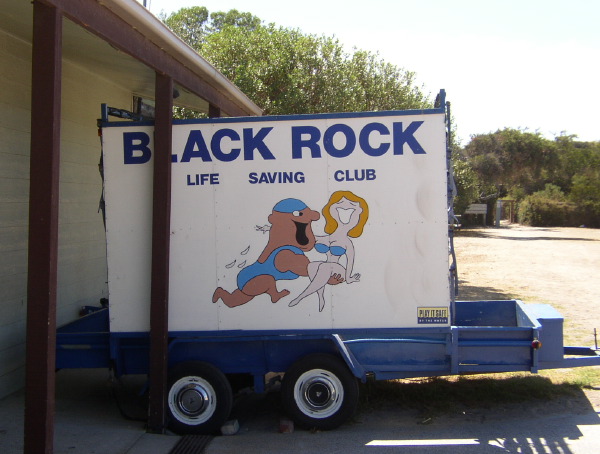|
"Melbourne - Queen City of the South" Melbourne Gay & Lesbian History series
BLACKROCK BEACH BEAT | |||||||||||||||||
|
listen:
| |||||||||||||||||
|
Although, as we will be hearing later in this series, homosexual law reform in Victoria was achieved in 1980, the final push began a few years before in 1977. Oddly enough, it was the Victorian police force that helped get the struggle under way.
In November and December 1976, the telephone counselling services operated by Gay Liberation and Society Five noticed a marked increase in callers asking for legal advice from men arrested on the beats. Inquiries through the scene revealed that police had been active at three or four city and suburban beats, and especially at Black Rock beach. Activists convened a meeting to discuss what to do about all this. Society Five representatives were especially keen to act, suggesting a formal complaint to the police commissioner, a leaflet directed at beat users, and approaches to the press.
This last at least produced results. On 18 December, Truth reported the events in its usual sensational style and a month later the mainstream press were onto the issue. The Age reported that police had opted to 'go gay to lure homosexuals'. In the report, senior local police gleefully revealed that officers had been lurking at Black Rock Beach, observing gay men on the beaches and in the tea-tree, teaching themselves to imitate the mannerisms, especially the 'particular walk', by which gay men identified each other. Some of the more attractive officers were then despatched in plain clothes to put this knowledge to work. Within a few days, sixty-eight men had been arrested for soliciting with homosexual intent. Where necessary, it was alleged, police used threats of imprisonment and publicly to extract confessions.
Newspaper reports brought all of this to wide public attention and, although there was a sudden if not very convincing rush of statements from the police denying that entrapment methods or any undue pressure had been used. the debate was off and running. Politicians, community groups and gay organisations expressed outrage. Lawyers offered support to those arrested. Letters of protest were written and published - including one offering sarcastic applause for the preparedness of police to 'fight on the beaches' at all hours of the day and night to prevent the end of civilisation.
If there were doubts about whether or not gay men ought to be having sex in public they were largely lost in the uproar over the ridiculous and unfair behaviour of the police.
Amidst the storm of protest and debate widespread support for the decriminalisation of male homosexual acts surfaced within the political mainstream. State Labor Party leader Clyde Holding led off. A week later, the Young Liberals organisation wrote to all their party members of parliament calling for reform of the laws.
And it worked - within a very short time, at the urging of the Premier, Dick Hamer, among others, Liberal Party MPs authorised the preparation of a bill to be voted on later in the year.
Although things were looking pretty
good in early 1978, it was in fact going to take a couple of years
to get the law passed - much longer than many expected - but the campaign
for law reform was at least underway. | |||||||||||||||||
| © text copyright Graham
Willett, Australian Lesbian & Gay Archives 2002 HOME | |||||||||||||||||
| |||||||||||||||||

